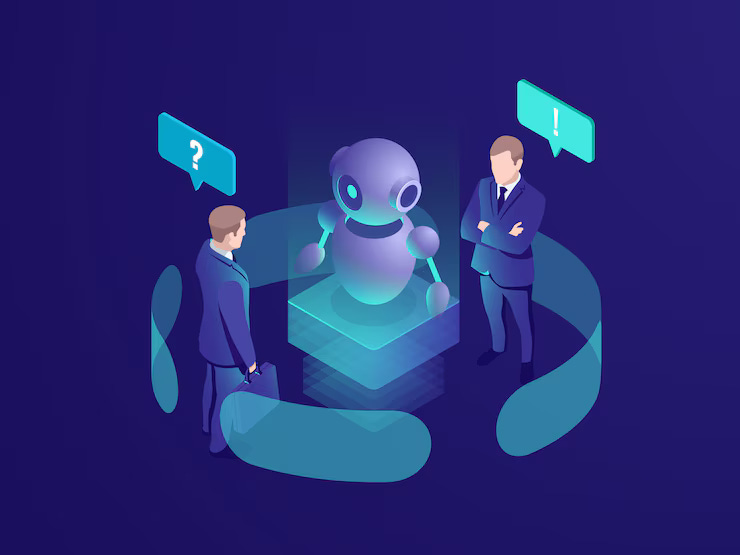AI Realities in Recruitment: Unpacking the Myths Behind ATS and AI-Powered Hiring
Guest article by Reyhaneh Khalilpour
Let’s Clear the Air About Applicant Tracking Systems (ATS)
They’re not futuristic robots rejecting your resume at the door.
Think of ATS as a sophisticated digital filing system designed to organize and store your information, so recruiters can access it quickly. No, it’s not an AI-powered decision-maker (yet)—it’s just a tool, plain and simple.
The Real Deal
ATSs have been around for decades, and many are still not AI-powered. Over 90% of companies use ATS systems without any AI to make decisions on resumes.
So, if you're spending hours trying to "game the system" by tweaking your resume to outsmart an ATS—let’s just say, you might be overthinking it.
Now, Let’s Get Into the Exciting World of AI in Recruitment
There’s a lot of confusion about what AI is actually doing in hiring. Let’s set the record straight.
Myth #1: AI Replaces Recruiters in Screening Candidates
Reality: While AI can assist with pre-screening, it’s still a very human process at its core. Most companies prefer having recruiters review resumes themselves.
Here’s why AI screening is still a work-in-progress:
Biases in the Data: AI learns from past data, which means it can perpetuate biases. AI doesn’t care if a “programmer” is male or female—it’s just reading data. And that’s where things can go wrong.
Legal Hurdles: Different countries are developing their own rules for AI in hiring, and staying compliant is a full-time job.
Accuracy Issues: AI doesn’t always get the nuances of human experience. It’s not great at understanding the subtleties of someone’s career journey.
The Human Touch: AI can’t assess a candidate’s vibe or cultural fit—something only humans can truly judge.
Where AI shines:
High-volume hiring (like retail or call centers), where basic resume filtering is key
Tech hiring, especially for coding tests—not resumes
Internal mobility, where AI helps find hidden gems within the company
Myth #2: AI Makes the Final Hiring Decision
Reality: While AI can recommend candidates, it doesn't make the call. The final decision still rests with human recruiters or hiring managers.
Here’s how AI is really helping:
Scheduling Interviews: AI eliminates the back-and-forth of email chains, making scheduling a breeze
Job Ad Optimization: AI can enhance job descriptions by removing biased language and improving readability
Sourcing Passive Candidates: AI hunts through databases and social media to identify candidates who aren’t actively job hunting
Engaging Candidates: AI chatbots can handle FAQs and collect pre-screening info, leaving recruiters to focus on the real work
Myth #3: ATS Uses AI to Reject Candidates
Reality: Most ATS platforms don’t have AI-powered rejection capabilities. They are still mostly databases that help recruiters organize and filter resumes based on keywords.
Here’s how ATS actually works:
Resume Organization: It stores and organizes applications for recruiters to review
Basic Filtering: Recruiters use Boolean searches to find resumes that meet specific criteria
Workflow Automation: It helps move candidates through different stages—but it doesn’t make the decision for you
So, no need to panic about being “rejected by the machine.” ATS simply helps keep things organized.
Examples of popular ATS platforms include Workday, Greenhouse, Lever, and BambooHR.
The Real Power of AI in Recruitment Today
AI isn’t the villain in the recruitment process—it’s the hero making things run smoother.
Here’s where it’s truly making an impact:
Scheduling: AI takes the headache out of coordinating interviews, making sure no one misses out on a good candidate
Job Ad Writing: AI helps craft job ads that are clear, engaging, and free of bias
Sourcing Candidates: Think of AI as a tireless recruiter scanning databases and LinkedIn profiles to find top talent
Chatbots: These friendly helpers collect information and answer candidate questions, ensuring a smooth candidate experience
Skill Assessments: AI can help grade coding tests and technical assessments, removing some of the manual workload
Predicting Hiring Needs: AI can forecast future hiring trends, so you're never caught off guard when someone leaves
Looking for an AI Screening Assistant?
AI-powered tools like Eightfold AI can help with resume screening, but they’re not magic.
They’re sophisticated tools designed to support recruiters—not replace them. They dive deep into resumes, predict success based on data, and reduce bias—making them valuable, but still just another tool in the recruiter’s toolbox.
Key Takeaway
Right now, AI is not here to take over recruitment—it’s here to make recruiters’ jobs easier.
The best recruiters use AI to streamline processes, handle the mundane tasks, and focus on what truly matters: the human side of hiring.
AI is evolving, and as it gets smarter, it will become an even more powerful ally for talent acquisition. The goal isn’t to fight AI, but to learn how to leverage it effectively.

